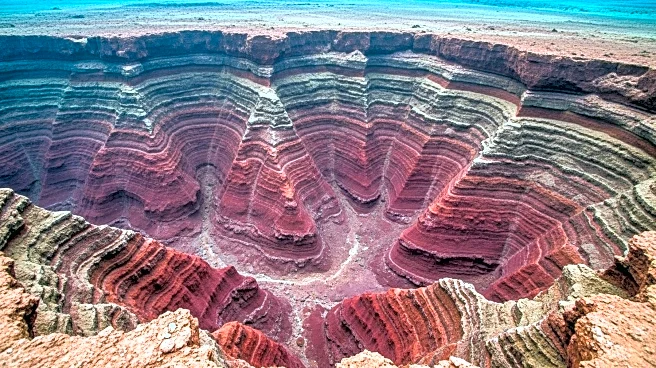What is the story about?
What's Happening?
Scientists at King Abdullah University of Science and Technology (KAUST) have discovered that the Red Sea completely dried out approximately 6.2 million years ago before being refilled by a catastrophic flood from the Indian Ocean. This event, which occurred over a span of about 100,000 years, transformed the Red Sea from a salt-filled basin to a thriving marine environment. The research utilized seismic imaging, microfossil evidence, and geochemical dating techniques to pinpoint the timing and nature of this dramatic geological change. The flood carved a submarine canyon and reconnected the Red Sea with the world's oceans, restoring marine conditions and establishing its lasting connection to the Indian Ocean.
Why It's Important?
The findings provide significant insights into the geological processes that shape oceanic environments. The Red Sea's history of desiccation and reflooding offers a unique perspective on how oceans are formed and expanded, and how environmental extremes can lead to the rebirth of marine ecosystems. This research underscores the importance of understanding historical climate and tectonic interactions, which can inform current and future environmental and geological studies. The study also highlights KAUST's leading role in Red Sea research, contributing to global knowledge about oceanic changes and their impacts.
What's Next?
The research may lead to further studies on the Red Sea's geological history and its implications for understanding global oceanic changes. Scientists could explore the long-term effects of such dramatic environmental events on marine biodiversity and ecosystem resilience. Additionally, the findings might influence future geological and environmental policies, particularly in regions susceptible to similar geological phenomena.
Beyond the Headlines
The study of the Red Sea's geological history provides a natural laboratory for understanding the accumulation of salt giants and the interaction between climate and tectonics over millions of years. This research could have broader implications for predicting and managing environmental changes in other oceanic regions, offering lessons on resilience and adaptation in marine ecosystems.















